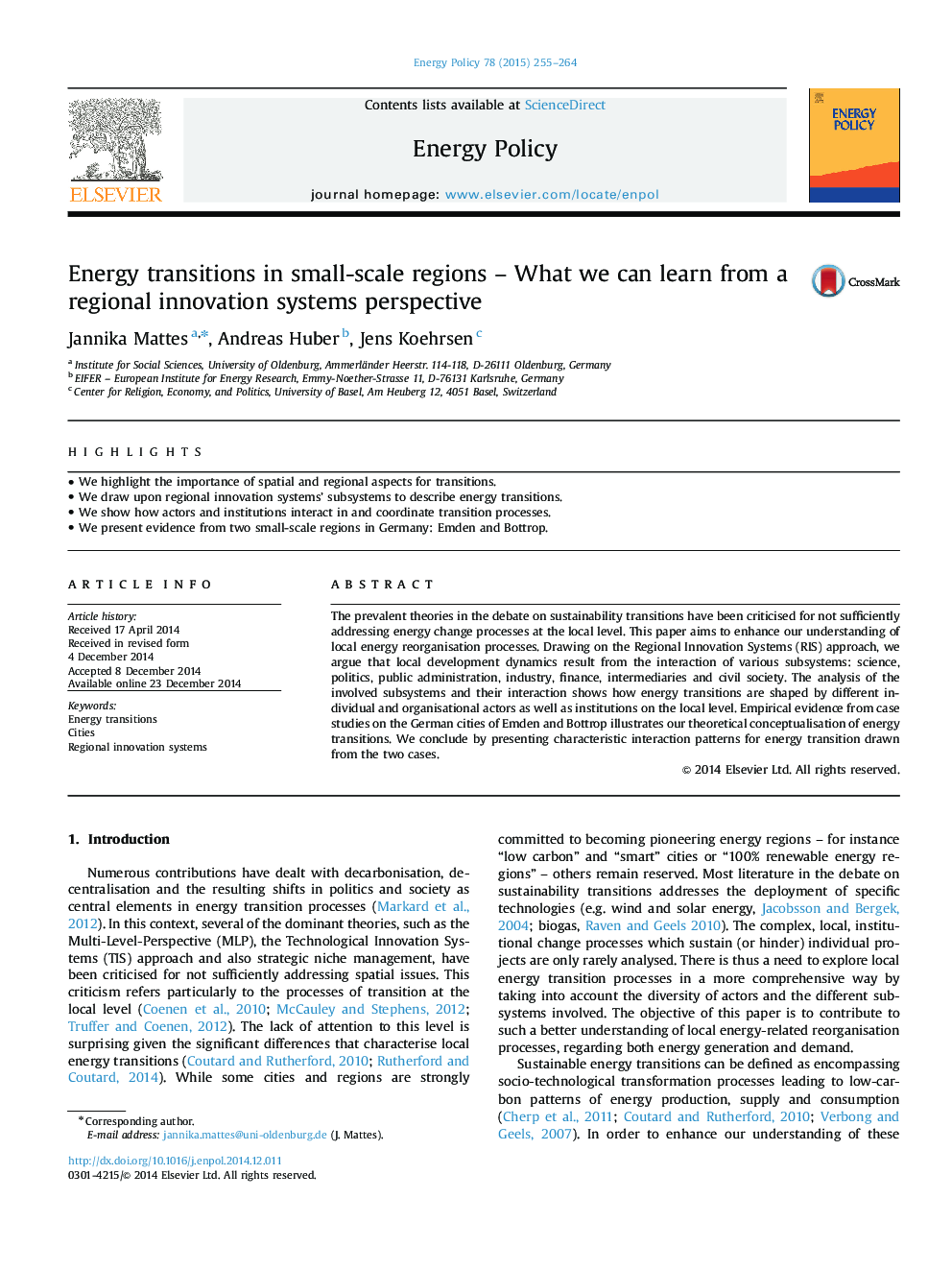| Article ID | Journal | Published Year | Pages | File Type |
|---|---|---|---|---|
| 995448 | Energy Policy | 2015 | 10 Pages |
•We highlight the importance of spatial and regional aspects for transitions.•We draw upon regional innovation systems’ subsystems to describe energy transitions.•We show how actors and institutions interact in and coordinate transition processes.•We present evidence from two small-scale regions in Germany: Emden and Bottrop.
The prevalent theories in the debate on sustainability transitions have been criticised for not sufficiently addressing energy change processes at the local level. This paper aims to enhance our understanding of local energy reorganisation processes. Drawing on the Regional Innovation Systems (RIS) approach, we argue that local development dynamics result from the interaction of various subsystems: science, politics, public administration, industry, finance, intermediaries and civil society. The analysis of the involved subsystems and their interaction shows how energy transitions are shaped by different individual and organisational actors as well as institutions on the local level. Empirical evidence from case studies on the German cities of Emden and Bottrop illustrates our theoretical conceptualisation of energy transitions. We conclude by presenting characteristic interaction patterns for energy transition drawn from the two cases.
